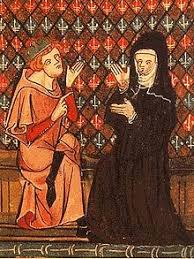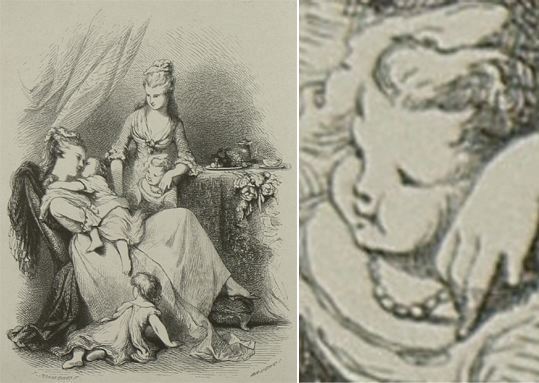|
Louise Keralio, historian, novelist, and journalist has been accused of sexism because of her emphasis on domestic virtues and political silence for women. (She has also been accused of misogyny because of an anonymous tract that we have no reason to think she wrote The Crimes of Queens). * Keralio emphasizes that women have a duty assigned them by nature to prefer domestic work to politics, and that this is essential to the well-being of the nation. In a letter to Brissot she wrote: A great love of publicity harms modesty. And from the loss of this great good comes distate for domestic work, and from lack of work, the forgetting of principles, and from loss of morals, all public disorders. But Keralio was definitely also of the opinion, at least in 1789, that France could only gain from letting her help shape the revolution. And she did not wait to be asked, but started a newspaper, Le Mercure National. Before that, she had been working on an anthology project, intending to publish forty volumes of works by French women writers, starting from Heloise. She had to give up after 6 volumes, due to lack of funds. But what she says in the early volumes is significant. Her account of Heloise, in particular, sheds light on her own ambitions. Heloise, she says, was a natural genius, superior in intellect to everyone of her contemporaries, regardless of sex. Yet, there was another account of Heloise from a strong influence on Louise Keralio: Rousseau’s. Rousseau’s heroine, in Julie or the New Heloise, starts off, like the real Heloise as the bright student of a philosopher. But when she discovers her true purpose, domesticity, she gives up all thoughts of feeding her intellect and devotes herself to her children, husband, and the neighbours, becoming the guarantor of virtue and stability at home and in the village. We tend to think that the shackles of domesticity have always held us back, that we are fighting the same gender stereotypes that our foremothers fought, from prehistoric times onwards. That we are fighting stereotypes is true, as it is that we are fighting off male domination. But the stereotypes were not always what they are.
In the 18thcentury, women were not necessarily thought of as ideal mothers, or virtuous wives. This is something that came from Rousseau, who revived the ideals of motherhood (making sure also that it couldn’t reach too great heights). This, as also his claim that mothers should feed their children themselves instead of employing the services of wet-nurses, was felt as liberating by some women. They were given a role in society that they didn’t have before. They were no longer just an extra pair of hands in the family business, or an ornament for the rich. They were the guarantors of virtue in the home and the republic. So it's no great wonder that a woman like Keralio who admired both the historical Heloise for her intellect and Rousseau’s New Heloise, for the advance in women’s place in society she represented at the time, appears somewhat muddled to 21th century feminists! * Thanks to Vicki Mistacco for sharing her research on Louise Keralio, and in particular for pointing me toward the letter to Brissot and the influence of Heloise of Argenteuil.
0 Comments
|
About
This is where I live blog about my new book project, an intellectual biography of three French Revolutionary women philosophers. Categories
All
Archives
November 2022
|


 RSS Feed
RSS Feed